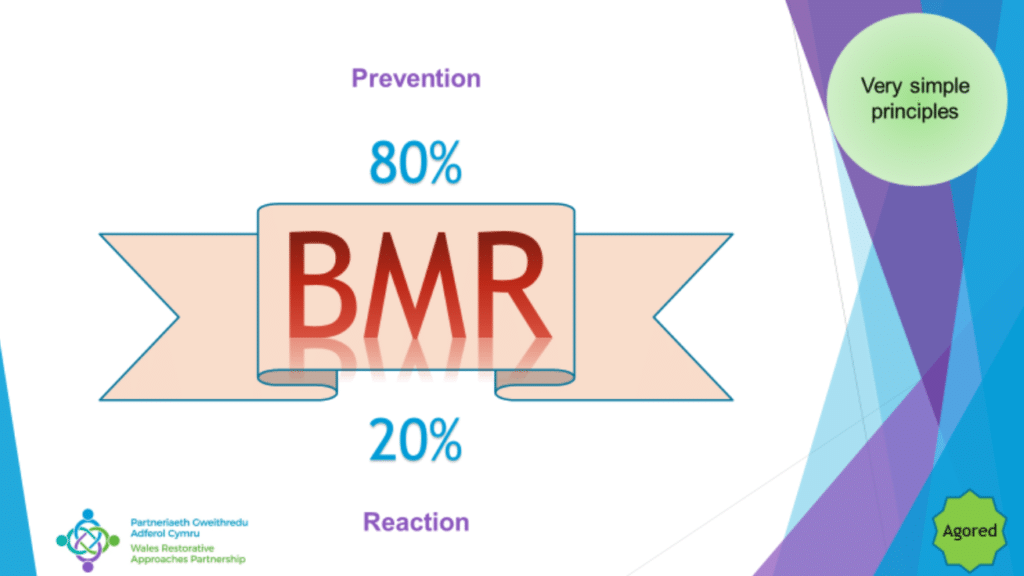There can be confusion around what Restorative Approaches is and is not. Is it the same as Restorative Justice, similar or not connected? In this lesson, we will clarify this.
Restorative Approaches can be defined as
“A way of being which includes outlook and the day to day skills involved in preventing and pre-empting conflicts and harm. It builds and maintains relationships and community, as well as reacting/ responding when things go wrong”
So what does this mean?
Well, to answer this we should break it down into sections:
“A way of being”
This may sound philosophical, and in fact it is. Restorative approaches is not just a specific tool we use some of the time. But instead, a way we approach all of our relationships. We are not just restorative on a Monday morning, but try to be at all times.
Therefore it is a value based approach to life.
What may some of these values be? Respect, empowerment, kindness, empathy and supportive challenge to name a few. We will cover this in more detail in the lesson titled “Values”.
“Skills involved in preventing and pre-empting conflict and harm”
Not only is it a value based approach, but one that gives practical tips and tools to use. Unlike some tools out there that focus on how to “win an argument” restorative work focusses on the skills used to a) prevent conflict, or at least the harm caused by conflict (as conflict is a normal human interaction) or b) how to work with another person to find a suitable way forward for both or c) Rebuild relationships when they have been damaged.
Therefore it provides skills for BUILDING, MAINTAINING and REPAIRING relationships.

Is this the same as Restorative Justice?
Just like all Jacuzzi’s are hot tubs, but not all hot tubs are Jacuzzi’s, Restorative Justice makes up a part of Restorative Approaches.
Restorative Justice is a process where a person who has caused harm meets with the person they have harmed to find restoration. There are many elements to this which is covered in our Facilitator Training Courses.
It is defined by the Restorative Justice Council as
“bringing those harmed by crime or conflict and those responsible for the harm into communication, enabling everyone affected by a particular incident to play a part in repairing the harm and finding a positive way forward”.
Restorative Approaches covers not just Restorative Justice Meetings, but all the restorative practices that an organisation may use to build and maintain the relationships that they want.



